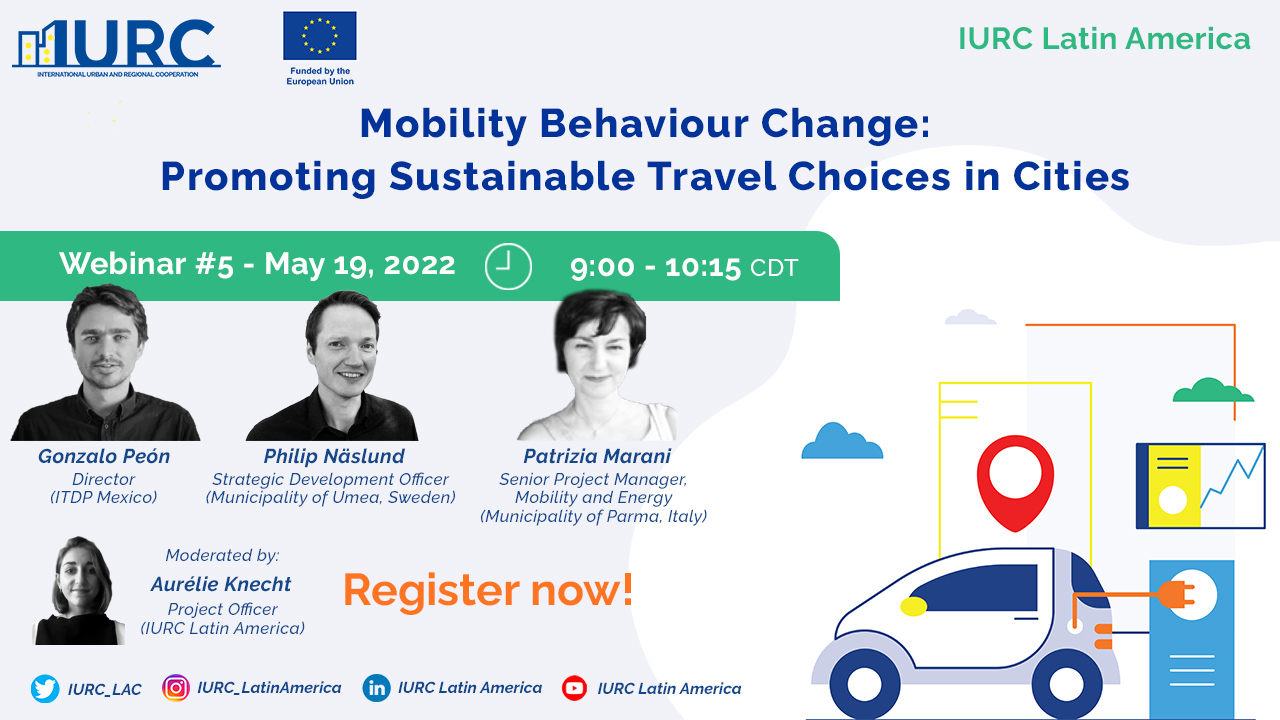The use of private motorised vehicles in cities is responsible for a series of negative externalities, such as air and noise pollution, traffic congestion and traffic accidents, amongst others. In this regard, cities are increasingly adopting innovative policies and measures to disincentivise the use of private cars, and therefore, promote more active and sustainable mobility choices.
Various measures and initiatives exist to incentivise Mobility Behaviour Change (MBC). Cities can pursue direct economic incentives, communication campaigns or nudging techniques to achieve a modal shift. Nudging, or “any aspect of the choice architecture that alters people’s behaviour in a predictable way without forbidding any options or significantly changing their economic incentives”, appears as an important strategy to encourage citizens to use sustainable modes of transportation. Methodologies adopted for nudging are based on a variety of variables, that include travel patterns of heterogeneous uses, travel sequence prediction, and the application of behavioural science to public policy. Advances in behavioural science indeed offer new toolkits for designing transportation programmes that promote sustainable travel behaviour. Overall, these methodologies seek to accompany people in their transition to more sustainable forms of mobility by understanding their needs and by providing them with easily accessible and quality alternatives to private cars.
In this view, the webinar seeks to highlight the importance of mobility behaviour change for a transition towards greener transportation patterns. Reviewing different strategies and case studies can inspire urban practitioners to develop and adopt nudging strategies and to involve local communities in their green transition.
The event will introduce mobility behaviour change measures and initiatives, encouraging citizens to adopt active and sustainable mobility habits. The agenda includes:
- Introducing Mobility Behaviour Change and Travel Demand Management – Gonzalo Peon (ITDP Mexico)
- Umea’s experience in promoting sustainable transportation – Philip Näslund (Municipality of Umea, Sweden)
- Parma’s experience in promoting sustainable transportation – Patrizia Marani (Municipality of Parma, Italy)
- Panel discussion and Q&A
Date: May 19th, 9:00 – 10:15 (CDT), 2022
Please don’t forget to register through the following link and feel free to share the event with your network. We are looking forward to seeing you on May 19th!
Please register here: https://us06web.zoom.us/webinar/register/8716473783833/WN_GYMtVbEmRCiyhdTpqZZpBQ
